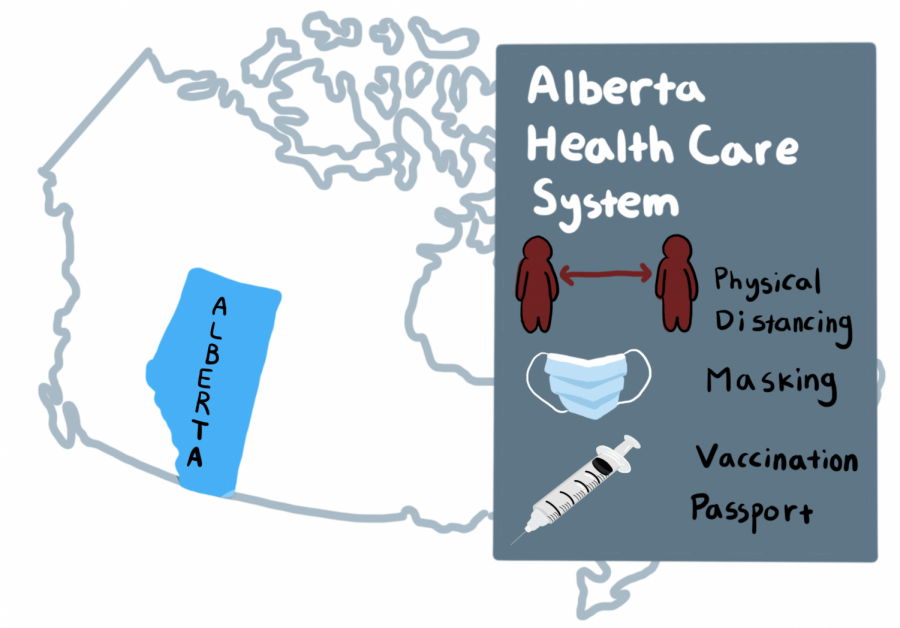COVID-19: Alberta Health care systems are on the verge of collapse
Media: Chloe Han ’22
Alberta Health Care System
Alberta, a province often referred to as the “Texas” of Canada, is well-known for not only its rich oil and gas industry (tapping into the world’s third-largest oil reserve) but also the natural beauty of its Canadian Rocky Mountains. Alberta literally fuels world economies and welcomes tourists to the iconic slopes of Banff, Lake Louise, and Jasper. Regrettably, it will now also be remembered for driving the fourth wave of COVID-19 cases across Canada. Healthcare systems collapsing under the weight of the fourth wave across America and Canada share a common warning: abandon public health measures and face overrun ICU’s and inpatient wards.
In June 2021, Jason Kenney, the current premier of Alberta, declared that the province was “open for summer.” Fresh off the third wave, he and his cabinet lifted all COVID-19 health restrictions on Canada Day: July 1, 2021. Despite watching a fourth wave emerge in highly vaccinated countries like Israel and Iceland, Kenney arbitrarily decided that a 70% population threshold for first dose COVID-19 vaccination was sufficient to move on from the pandemic. Kenney’s political website sold hats with the slogan “Best Summer Ever.”
As of Oct. 3, Alberta had over 20,000 active cases of COVID-19 with over 1,000 patients hospitalized, 263 of whom were in ICU beds. ICU utilization currently sits at 175% and is only sustainable because ICU “surge spaces” have been created across all hospitals, taking over wards and operating rooms previously dedicated for other patient care. All elective surgeries have been canceled across the province, with only emergency operations permitted. Even pediatric patients with operative forms of cancer and transplant patients have been told to wait until the stress on the healthcare system from COVID-19 becomes manageable. Doctors, nurses, and hospital staff are physically and emotionally exhausted by the surge in cases, high acuity, and deaths. Dr. Deena Hinshaw, Alberta’s chief medical officer of health, recently stated: “I think that trajectory was set when we removed all public health restrictions at the beginning of July.” She went on to state, “We have a crisis, that’s clear.”
On Sept. 16, Kenney apologized to Albertans, replaced his health minister, and declared a public health emergency. Masking and physical distancing restrictions have been re-implemented with a proof of vaccination passport created for access to all non-essential venues and services. Most businesses have mandated that employees be double vaccinated by Oct. 31, and a predictable surge in vaccination uptake across eligible age groups has occurred. As of Oct 3, 84% of eligible Albertans have received one dose of vaccine with 75% fully vaccinated.
Similarly to Alberta, Pennsylvania lifted its mask mandate on June 28. Although only 58.7% of Pennsylvanians are fully vaccinated, according to Our World in Data, the number of cases and hospitalizations has seen a 15% 14-day increase. As the fourth wave of COVID-19 goes across America, the Pennsylvania government faces a choice: keep loose restrictions and face a possibility of Alberta’s disaster or reimplement mask mandates and similar COVID-controlling measures.
























